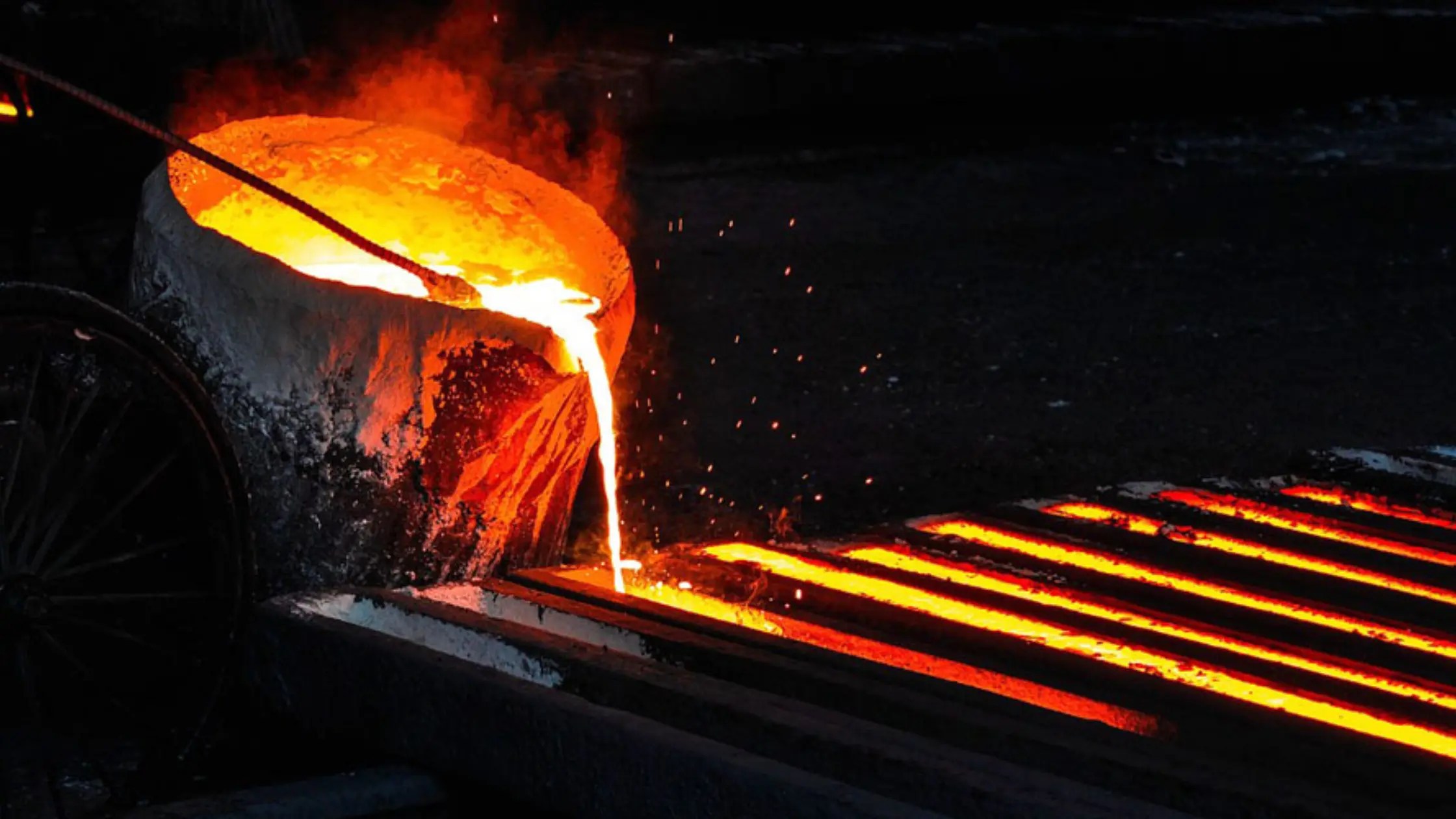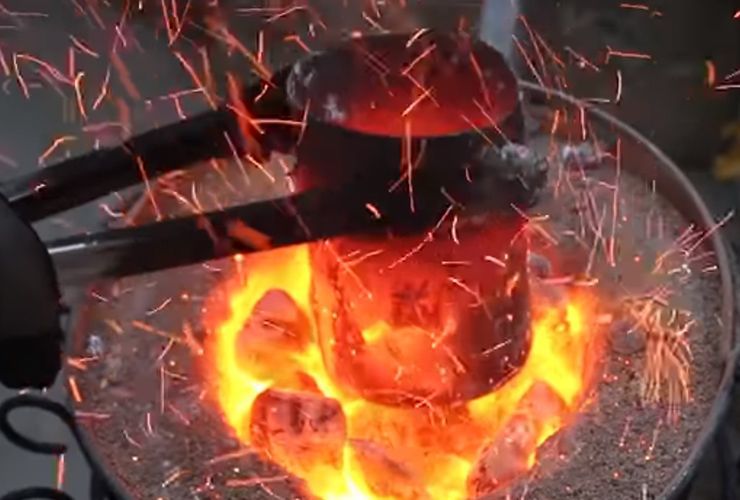The growing demand for green solutions in Aluminum Foundry workflows
Wiki Article
Discover the Diverse Providers Given by Steel Shops in Todays Sector
Metal foundries play an important role in modern-day production by using a range of services tailored to satisfy commercial needs. They use techniques like sand spreading and accuracy machining to produce complicated components. Custom alloy growth additionally enhances item performance. However, top quality control and sustainability are progressively ending up being centerpieces in the sector. Recognizing these diverse solutions exposes the substantial effect shops have on production effectiveness and ecological obligation. What else could be influencing their advancement?Metal Spreading Techniques: A Summary
Metal casting methods embody a blend of artistry and design, changing molten steel right into accurate forms and forms. These techniques have actually advanced over centuries, adjusting to technological advancements and the diverse demands of various industries. Among the most typical techniques are sand casting, which makes use of sand mold and mildews; investment casting, recognized for its intricate styles; and pass away casting, which uses high pressure for quick manufacturing.
Each method provides unique advantages, such as price effectiveness, precision, and the ability to deal with different steel types. Sand spreading is specifically preferred for its flexibility and simplicity of use, whereas financial investment casting masters creating comprehensive components. Die casting, on the various other hand, is optimal for high-volume manufacturing, making certain harmony and rapid turnaround. Jointly, these methods play a necessary role in developing elements for automotive, aerospace, and equipment sectors, showcasing the complex connection in between layout and performance in metalworking.

Precision Machining Services
Precision machining solutions provide high precision and uniformity in the construction of complex components throughout different sectors - Aluminum Foundry. These solutions are necessary for generating components that call for elaborate layouts and tight resistances, making sure that they satisfy rigorous quality standards. Advanced machining techniques, including CNC milling, turning, and grinding, enable steel foundries to develop elements with remarkable detail and coatingUsing modern equipment, precision machining can take care of a large range of materials, including compounds, steels, and plastics. This versatility allows sectors such as aerospace, automobile, and clinical to benefit from tailored options that boost product efficiency and dependability.

Custom-made Alloy Development
Custom alloy growth plays a crucial role in meeting the details demands of numerous industrial applications. Steel factories take part in developing tailored alloys that cater to distinctive efficiency requirements, such as toughness, corrosion resistance, and thermal conductivity. By making use of sophisticated metallurgical strategies and simulations, these factories can develop alloys that enhance the total performance of products across diverse fields, consisting of aerospace, vehicle, and electronic devices.Partnership in between shops and clients is considerable in this procedure. Metallurgists and designers collaborate to identify desired residential or commercial properties, permitting exact changes in structure and handling methods. This bespoke method not only enhances product efficiency however likewise contributes to set you back performance by decreasing waste and maximizing source use.
In the competitive landscape of modern manufacturing, custom alloy growth is a crucial solution that encourages services to innovate and keep an affordable side while attending to particular operational obstacles efficiently.
Quality Control and Testing Procedures
Making certain the greatest standards of high quality control and screening procedures is essential for steel factories to supply trustworthy products. These treatments generally encompass a variety of techniques created to assess the stability and efficiency of metal spreadings. Foundries use different screening methods, consisting of visual inspections, mechanical residential or commercial property evaluations, and non-destructive testing approaches such as radiographic and ultrasonic analyses.Material composition is rigorously assessed using spectrometric techniques to validate adherence to specified alloy requirements. Furthermore, thermal analysis may be performed to keep track of solidification patterns and great post to read predict mechanical buildings.
Paperwork of each testing stage is important, as it provides traceability and assurance that the items fulfill sector regulations and customer expectations. By carrying out rigorous quality assurance processes, metal factories not just boost item reliability yet additionally foster trust with clients, maintaining a competitive edge in the market.
Sustainability Practices in Metal Foundries
As markets significantly focus on ecological duty, steel shops are taking on sustainability techniques that decrease their eco-friendly footprint. Numerous factories are implementing closed-loop systems to reuse materials, lowering waste and saving resources. This technique not only reduces the demand for basic materials however likewise reduces power usage during production.Some foundries are investing in energy-efficient technologies, such as electrical heaters and advanced cooling systems, which greatly decrease greenhouse gas discharges. Using environment-friendly spreading materials and additives further boosts sustainability by decreasing unsafe environmental impacts.
Water conservation is an additional critical emphasis, with shops employing recirculation systems to restrict water usage. Furthermore, waste management strategies, including the recycling try this site of sand and metal scrap, are coming to be typical technique. By integrating these sustainability procedures, metal foundries are placing themselves as responsible players in the production sector, aligning with international efforts to advertise an extra sustainable commercial landscape.
Often Asked Questions
What Industries Frequently Usage Metal Shop Services?
Different industries utilize metal shop solutions, including vehicle, aerospace, building, and power fields. These industries rely upon factories for tailored metal components, casting options, and wikipedia reference high-grade materials vital for their production processes and product growth.Exactly How Can I Choose the Right Foundry for My Job?
To select the appropriate foundry, one must examine variables such as specialization, online reputation, modern technology, quality control procedures, distribution timelines, and customer support. Performing comprehensive research study and seeking suggestions can even more guide the decision-making process.What Is the Average Lead Time for Casting Orders?
The typical preparation for casting orders commonly varies from 4 to twelve weeks. Factors influencing this timeline consist of order intricacy, factory capability, and material accessibility, which can vary considerably among various factories.
Are Metal Foundries Efficient In Making Small Batch Runs?

What Safety Actions Are Carried Out in Metal Shops?
Metal foundries apply different precaution, consisting of personal safety equipment, air flow systems, regular training, emergency action procedures, and rigorous adherence to security regulations to minimize hazards connected with liquified steel handling and workplace crashes.Metal factories play an important role in modern-day manufacturing by supplying a selection of services customized to meet commercial needs. Steel foundries involve in developing tailored alloys that cater to distinctive performance requirements, such as toughness, corrosion resistance, and thermal conductivity. Making sure the highest possible requirements of top quality control and screening procedures is crucial for metal factories to deliver trusted items. As sectors increasingly prioritize environmental responsibility, steel foundries are embracing sustainability techniques that minimize their eco-friendly impact. Various industries make use of steel foundry services, including vehicle, building, power, and aerospace industries.
Report this wiki page